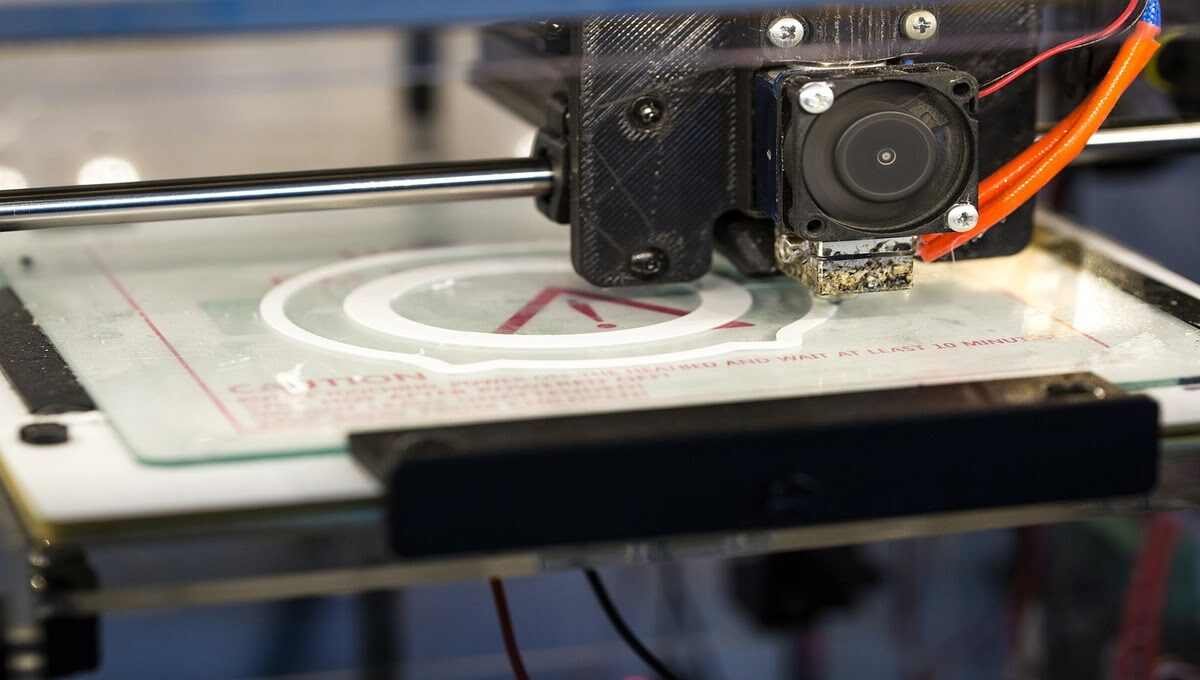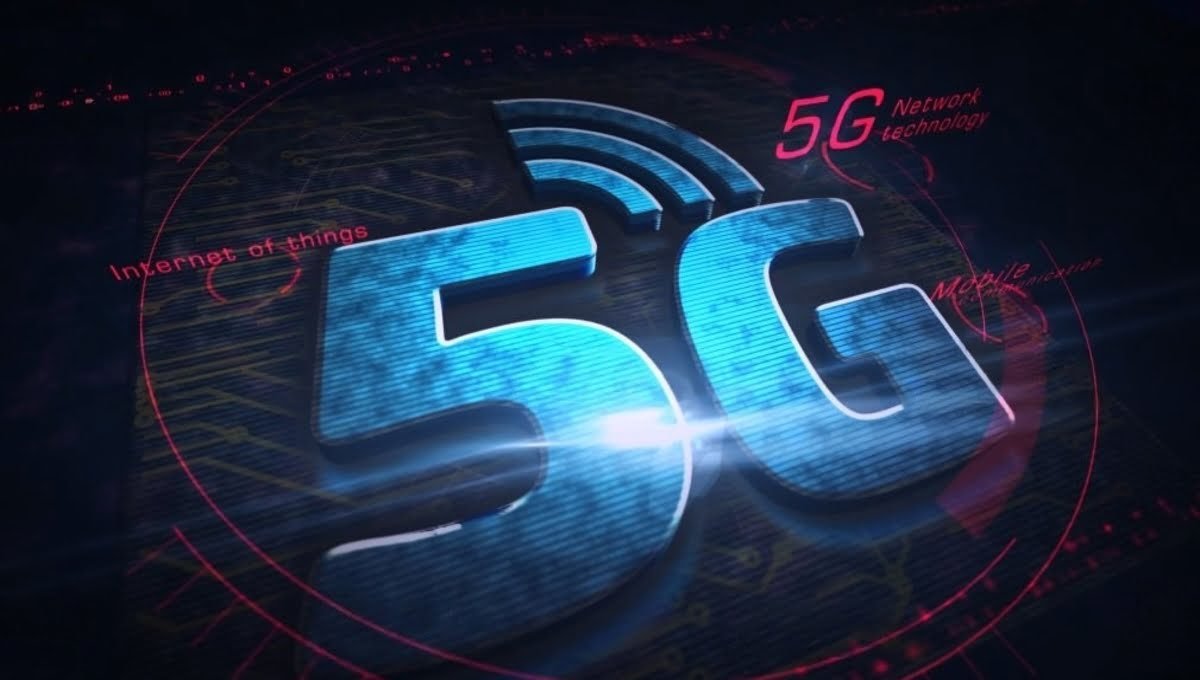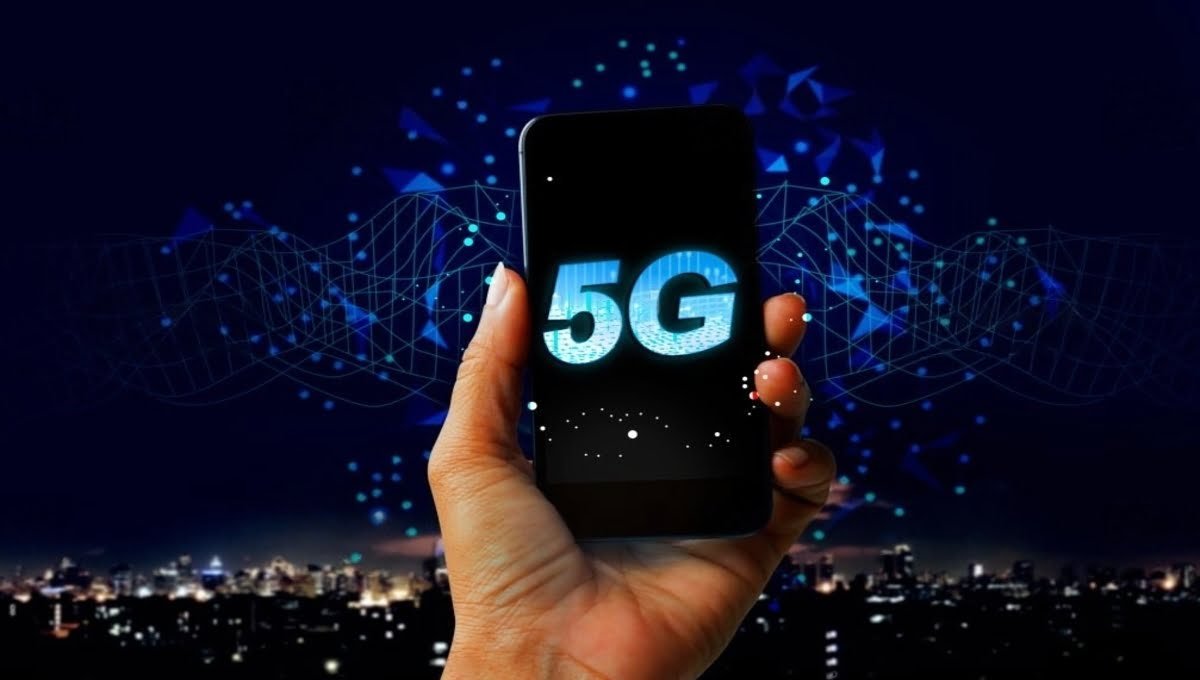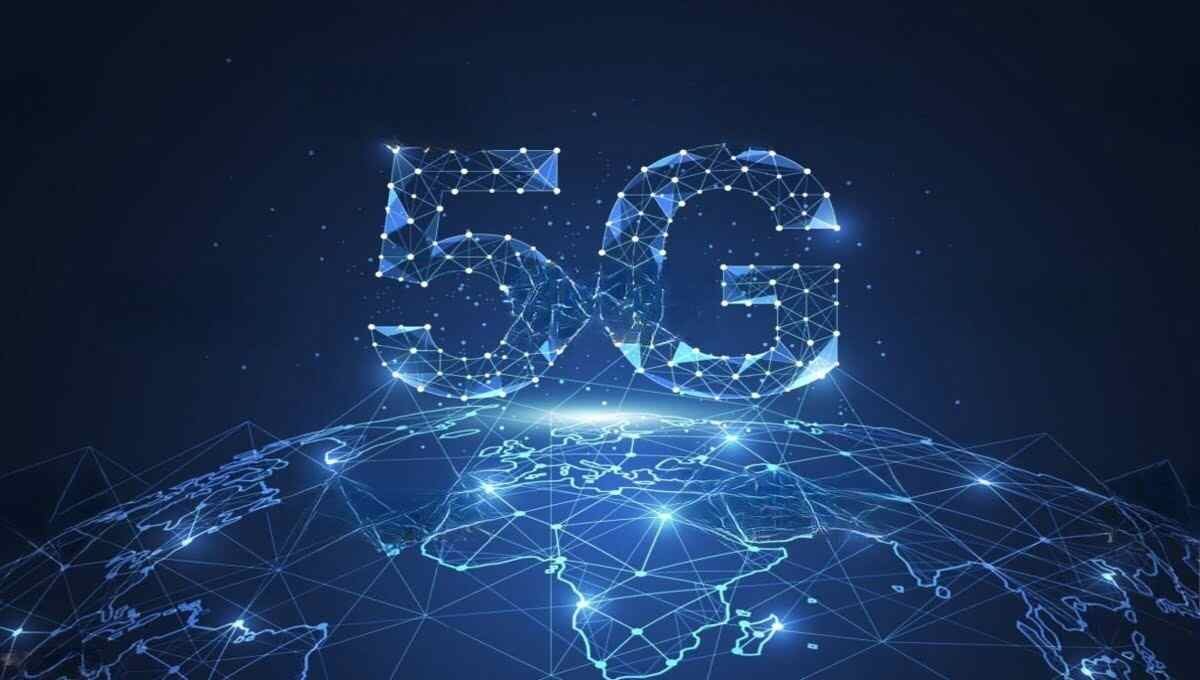5G
How 5G Technology Will Revolutionize Our Lives and Work
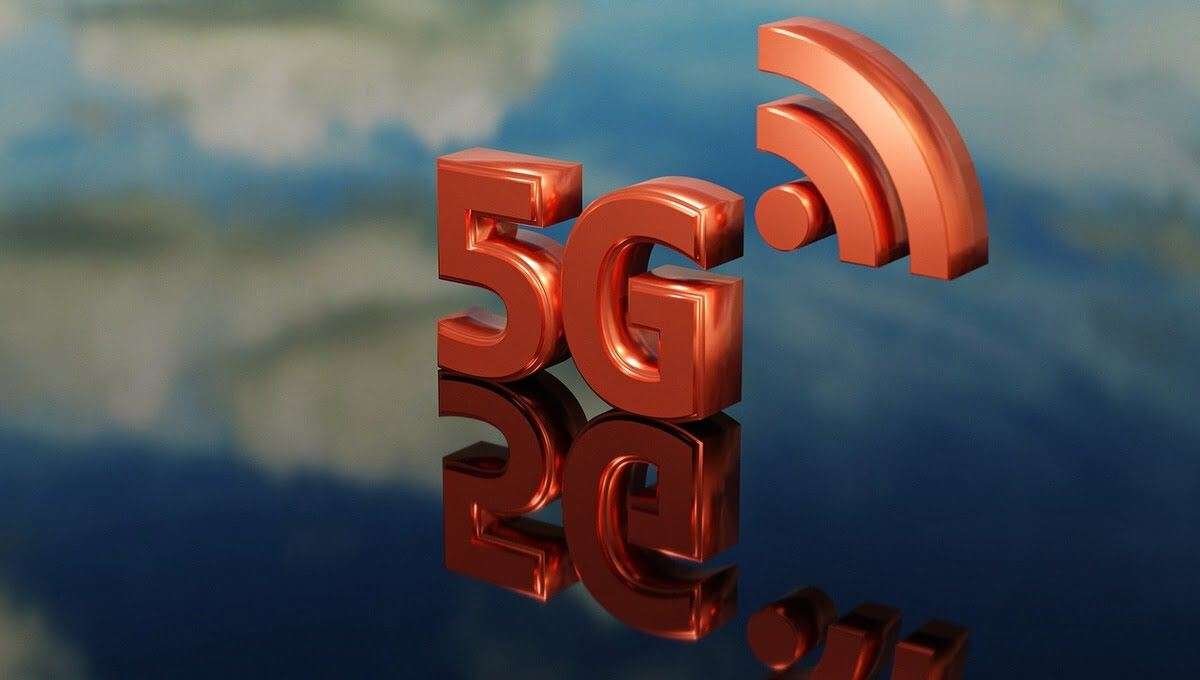
The advent of 5G technology is set to revolutionize the way we live and work, bringing about transformative changes in various aspects of our daily lives. With lightning-fast speeds, reduced latency, and increased capacity, 5G will unlock a new era of connectivity, paving the way for enhanced communication, improved healthcare, and the seamless integration of smart technologies. In this article, we will explore how 5G will shape our future, enabling us to lead more efficient, productive, and connected lives.
Enhanced Connectivity of 5G Technology
Lightning-fast Internet Speeds
With 5G, the world will witness unprecedented internet speeds, allowing us to download large files, stream high-definition videos, and engage in real-time communication without any lag or buffering. This ultra-fast connectivity will enable us to access information instantaneously, enhancing productivity and efficiency in both personal and professional spheres.
Reduced Latency
One of the remarkable features of 5G is its significantly reduced latency. Latency refers to the delay between sending and receiving data. With 5G networks, latency will be minimized to mere milliseconds, making real-time applications like remote surgeries, autonomous vehicles, and virtual reality experiences seamless and responsive.
Increased Capacity
The capacity of 5G networks will be significantly higher than previous generations, capable of handling a massive number of connected devices simultaneously. This scalability will be crucial in supporting the exponential growth of the Internet of Things (IoT) and enabling the seamless interconnectivity of various smart devices in our homes, cities, and workplaces.
Internet of Things (IoT) Revolution
Seamless Interconnectivity of 5g
5G will lay the foundation for the IoT revolution by providing a robust and reliable network infrastructure to support the interconnectivity of billions of devices. From smart homes to connected vehicles and industrial automation, 5G will enable seamless communication between devices, creating a truly interconnected world.
Smart Homes and Cities
With 5G, our homes will become smarter than ever before. We will be able to control our appliances, lighting, security systems, and more through connected devices, making our lives more convenient and efficient. Additionally, 5G will play a crucial role in the development of smart cities, facilitating advanced infrastructure management, traffic optimization, and environmental monitoring.
Industrial Automation
5G will revolutionize industries by enabling advanced automation and optimization of manufacturing processes. With ultra-low latency and high reliability, 5G-powered industrial systems will enhance productivity, reduce downtime, and improve overall operational efficiency. Industries such as transportation, logistics, and healthcare will experience significant transformations through the integration of 5G technology.
5G Advancements in Healthcare
Telemedicine and Remote Surgeries
5G will redefine the healthcare industry by enabling telemedicine and remote surgeries on a large scale. With high-speed, low-latency connections, doctors will be able to perform surgeries remotely, providing expert care to patients in remote areas. Telemedicine will become more accessible, allowing patients to receive medical consultations from the comfort of their homes.
Wearable Devices and Health Monitoring
The introduction of 5G will spur the development of advanced wearable devices that can monitor various health parameters and transmit real-time data to healthcare professionals. This technology will enable more accurate diagnoses, timely interventions, and personalized healthcare solutions, leading to improved patient outcomes.
Improved Access to Healthcare Services
5G will bridge the gap in healthcare accessibility, particularly in underserved areas. Through telemedicine and remote monitoring, individuals in remote locations will gain access to quality healthcare services. Additionally, 5G will facilitate the quick transfer of medical records, ensuring seamless coordination between healthcare providers and improving the overall efficiency of healthcare systems.
5G Transformation of Industries
Autonomous Vehicles and Transportation
The implementation of 5G networks will accelerate the development of autonomous vehicles, making self-driving cars safer and more reliable. With reduced latency and increased data capacity, vehicles will be able to communicate with each other and the surrounding infrastructure in real-time, enhancing road safety and efficiency.
Augmented and Virtual Reality
5G will unlock the true potential of augmented reality (AR) and virtual reality (VR) technologies. With high-speed connectivity, AR and VR experiences will become more immersive, enabling applications in fields such as gaming, education, training, and design. From interactive virtual tours to realistic simulations, 5G will revolutionize the way we perceive and interact with digital content.
Smart Manufacturing and Supply Chains
5G will drive the transformation of manufacturing processes and supply chains by enabling real-time monitoring, predictive maintenance, and seamless connectivity between machines and systems. This connectivity will enhance productivity, optimize inventory management, and enable efficient tracking and tracing of goods, leading to streamlined operations and reduced costs.
5G Impact on Communication and Entertainment
Ultra-High Definition Streaming
With 5G, streaming high-quality content will become the norm. The enhanced bandwidth and low latency of 5G networks will enable seamless streaming of ultra-high definition videos, providing users with immersive entertainment experiences. From 4K and 8K video streaming to virtual reality content, 5G will redefine the way we consume and enjoy media.
Real-time Collaboration
5G will revolutionize collaboration by enabling real-time communication and collaboration tools. Remote teams will be able to collaborate seamlessly, regardless of geographical barriers. Video conferences, file sharing, and project management will become more efficient, fostering global collaboration and boosting productivity.
Immersive Gaming Experiences
Gamers will witness a new era of immersive gaming experiences with 5G. The low latency and high-speed connections will allow for real-time multiplayer gaming, augmented reality integration, and cloud gaming services. The introduction of 5G will not only enhance the gaming experience but also open up new possibilities for mobile gaming and eSports.
5G Enhanced Security and Privacy’Enhanced Security and Privacy
Advanced Encryption and Authentication
5G networks will incorporate advanced encryption and authentication mechanisms to ensure the security and privacy of user data. These robust security measures will protect against unauthorized access and cyber threats, providing users with a secure and reliable network environment.
Protection Against Cyber Threats
As technology evolves, so do the threats. 5G will bring advancements in cybersecurity, providing improved protection against emerging threats. With sophisticated network monitoring and real-time threat detection, 5G networks will enhance the resilience of critical infrastructure, safeguarding against cyberattacks and data breaches.
5G Challenges and Considerations
Infrastructure Development
The widespread implementation of 5G requires substantial infrastructure development, including the installation of new towers and antennas. The deployment of 5G networks will require significant investments and collaboration between governments, telecommunication companies, and other stakeholders.
Network Coverage and Accessibility
While 5G offers remarkable speeds and capabilities, ensuring comprehensive network coverage across all regions remains a challenge. Rural and remote areas may experience slower adoption due to infrastructure limitations, potentially leading to a digital divide. Efforts must be made to ensure equitable access to 5G networks for all communities.
Privacy Concerns
The proliferation of connected devices and the vast amounts of data generated by 5G networks raise privacy concerns. It is crucial to implement stringent data protection measures, transparent privacy policies, and secure data management practices to address these concerns and maintain user trust in the technology.
5G Myths and Facts
There are a number of myths and misconceptions about 5G. Here are some of the most common myths and facts:
| Myth | Fact |
|---|---|
| 5G is dangerous to human health. | There is no scientific evidence to support this claim. 5G uses radio waves, which are a form of non-ionizing radiation. Non-ionizing radiation does not have enough energy to damage DNA, the building blocks of cells. |
| 5G will cause cancer. | There is no evidence to support this claim. Cancer is a complex disease that is caused by a combination of factors, including genetics, lifestyle, and environmental exposure. There is no evidence that 5G exposure is a risk factor for cancer. |
| 5G will interfere with medical devices. | There is no evidence to support this claim. 5G uses a different frequency spectrum than 4G LTE, which is the current generation of mobile networks. Medical devices that are designed to work with 4G LTE will also work with 5G. |
| 5G is a Chinese plot to spy on people. | There is no evidence to support this claim. 5G is a global technology that is being developed and deployed by companies from all over the world. There is no evidence that 5G can be used to spy on people. |
| 5G will cause the zombie apocalypse. | This is a ridiculous myth that conspiracy theorists have spread. There is no scientific evidence that 5G can cause any harm to humans. |
Conclusion of 5G Technology
5G technology is poised to revolutionize the way we live and work, offering lightning-fast speeds, reduced latency, and increased capacity. From enhanced connectivity and IoT interconnectivity to advancements in healthcare, transportation, and entertainment, 5G will reshape industries and transform the way we interact with technology. However, addressing infrastructure challenges, ensuring network accessibility, and prioritizing privacy and security will be crucial for the successful adoption of 5G on a global scale.
Frequently Asked Questions (FAQs)
How fast is 5G compared to previous generations?
5G can provide speeds up to 100 times faster than 4G, reaching gigabit speeds in ideal conditions.
Will 5G replace Wi-Fi?
While 5G offers high-speed connectivity, Wi-Fi will still play a significant role in indoor coverage and local area networking.
When will 5G be widely available?
The availability of 5G varies by region. It is being gradually rolled out, and widespread coverage is expected in the coming years.
How will 5G impact the job market?
5G will create new job opportunities in various sectors, including telecommunications, technology development, IoT, and related industries.

5G
5G vs 4G: What’s the Real Difference?
Introduction
The transition from one generation to the next in the realm of mobile communication frequently seems like a leap into the future. But what exactly makes 5G stand apart from 4G? While 4G revolutionized mobile communication by making high-speed internet a standard, 5G promises to take connectivity to a whole new level.
In this article, we’ll break down the differences between 4G and 5G, exploring their unique features, benefits, and challenges. Let’s dive in!
Understanding 4G Technology
Evolution of 4G
4G, or the fourth generation of mobile networks, debuted in the late 2000s. It was a game-changer, introducing high-speed internet capable of supporting video streaming, online gaming, and advanced mobile applications.
Key Features of 4G
- Speed: With speeds up to 100 Mbps, 4G networks made it easy to browse, download, and stream seamlessly.
- Latency: Latency in 4G is around 50 milliseconds, which is sufficient for most real-time applications.
- Connectivity: 4G networks significantly improved data transfer and call quality compared to 3G.
Introduction to 5G Technology
What is 5G?
5G is the fifth generation of mobile networks, promising blazing-fast speeds, ultra-low latency, and the ability to connect a massive number of devices simultaneously. Launched globally in the late 2010s, 5G is designed to support emerging technologies like IoT, augmented reality (AR), and autonomous vehicles.
Core Features of 5G
- Enhanced Speed: Speeds can reach up to 10 Gbps, making it up to 100 times faster than 4G.
- Ultra-Low Latency: With latency as low as 1 millisecond, 5G enables near-instantaneous communication.
- Massive Connectivity: 5G can support up to 1 million devices per square kilometer, a critical improvement for IoT and smart cities.
Key Differences Between 4G and 5G
Speed Comparison
While 4G offers respectable speeds, 5G delivers a dramatic increase, enabling seamless 4K video streaming and large file transfers in seconds.
Latency Differences
Latency in 5G is almost negligible, making it ideal for applications like remote surgery and real-time gaming, where every millisecond counts.
Network Capacity
5G’s ability to handle a high density of devices ensures better performance in crowded areas, like stadiums or concerts.
Coverage Area and Deployment
4G networks currently cover a broader area than 5G, but as 5G infrastructure expands, it’s expected to catch up.
4g vs 5g comparison table
| Feature | 4G | 5G |
|---|
| Launch Year | 2009-2010 | 2019-2020 |
| Peak Speed | Up to 1 Gbps | Up to 10 Gbps |
| Latency | 20-50 milliseconds | 1-10 milliseconds |
| Bandwidth | Lower bandwidth compared to 5G | Significantly higher bandwidth |
| Frequency Bands | 700 MHz to 2.6 GHz | 24 GHz to 100 GHz |
| Capacity | Limited devices per network cell | Supports a higher density of devices |
| Energy Efficiency | Moderately energy efficient | More energy-efficient per data unit |
| Use Cases | Mobile internet, streaming, video calls | IoT, smart cities, autonomous vehicles, AR/VR |
| Coverage | Wider coverage globally | Limited initially, expanding gradually |
| Technology | LTE (Long-Term Evolution) | mmWave, Sub-6 GHz, Massive MIMO |
| Connection Density | Up to 100,000 devices per square kilometer | Up to 1 million devices per square kilometer |
| Deployment Cost | Lower relative cost | Higher infrastructure cost initially |
| Primary Benefits | Faster internet speeds than 3G | Ultra-low latency, high speeds, and reliability |
| Drawbacks | Struggles with high congestion areas | Requires dense infrastructure (small cells) |
Benefits of 5G Over 4G
Advantages in Daily Life
- Streaming and Gaming: Experience buffer-free streaming and lag-free gaming, even in high resolutions.
- IoT Integration: From smart homes to wearable tech, 5G enhances the functionality of connected devices.
Business and Industrial Impacts
- Smart Cities: 5G facilitates real-time data sharing, powering innovations like traffic management and public safety systems.
- Automation and Robotics: Industries can achieve greater efficiency with 5G-enabled automation and robotics.
Challenges of 5G Technology
Infrastructure Demands
Deploying 5G requires building new towers and upgrading existing infrastructure, which is both time-consuming and expensive.
Device Compatibility
Not all devices support 5G, necessitating upgrades for consumers and businesses alike.
Cost of Deployment
The transition to 5G involves significant costs for telecom companies, which could impact pricing for end users.
How 4G Still Holds Relevance
Existing Infrastructure
4G networks are well-established, ensuring reliable connectivity in areas where 5G is not yet available.
Accessibility and Affordability
For users who don’t require the advanced features of 5G, 4G remains a cost-effective and efficient option.
The Future of Connectivity
5G’s Potential to Revolutionize Communication
With its unparalleled speed and connectivity, 5G is paving the way for technological advancements we can only imagine today.
What Lies Beyond 5G?
Research into 6G and beyond suggests even more transformative possibilities, including holographic communication and brain-computer interfaces.
Conclusion OF 5G vs 4G
Both 4G and 5G have their unique strengths and challenges. While 4G continues to serve as a reliable and affordable option for many, 5G is undoubtedly the future of connectivity. As the technology matures, it will unlock opportunities we’ve yet to fully grasp.
FAQs
1. What is the primary difference between 4G and 5G?
The primary difference is speed and latency—5G offers faster speeds and significantly lower latency than 4G.
2. Can 5G completely replace 4G?
Not yet. 5G is still being deployed, and 4G remains essential in areas without 5G coverage.
3. Do I need a new phone for 5G?
Yes, a 5G-compatible phone is required to access 5G networks.
4. How does 5G impact battery life?
5G can consume more battery, but modern devices are optimized to handle the increased demand efficiently.
5. Is 5G available everywhere?
No, 5G coverage is still expanding and is not yet available in many rural or remote areas.
5G
How 5G technology works
Introduction
Ever wondered why everyone is so hyped about 5G? It’s not just another generation of mobile networks—it’s a game-changer! 5G technology promises lightning-fast speeds, near-instant connectivity, and the power to revolutionize everything from smart cities to healthcare. Let’s dive into how this amazing technology works and what makes it so unique.
From 1G to 4G: A Quick Recap
To understand 5G, let’s rewind a bit.
- 1G: The era of analog voice calls.
- 2G: introduced digital voice and text messaging.
- 3G: Brought mobile internet to life.
- 4G: Revolutionized streaming with faster internet speeds.
Each generation was a leap forward, but even 4G has its limitations.
Key Limitations of 4G
- Speed: Struggles with handling high traffic in dense areas.
- Latency: Not fast enough for real-time applications like autonomous vehicles.
What Makes 5G Different?
Defining Characteristics of 5G
5G isn’t just faster—it’s smarter and more efficient.
- Speeds up to 100 times faster than 4G.
- Ultra-low latency, meaning minimal delay in data transmission.
- Capacity to connect millions of devices simultaneously.
Speed and Latency Improvements
With 5G, downloading a movie takes seconds, and online gaming feels like a face-to-face duel with zero lag. Impressive, right?
Massive Device Connectivity
From smart homes to wearable devices, 5G enables a network where everything is interconnected.
How Does 5G Technology Work?
How 5G technology works
Key Components of 5G Infrastructure
Small Cells
Tiny base stations scattered throughout cities provide uninterrupted coverage.
Massive MIMO (Multiple Input, Multiple Output)
Think of it as a multi-lane highway for data—more lanes mean more traffic handled efficiently.
Beamforming
Directs signals precisely to devices, avoiding interference.
Spectrum Bands Used in 5G
Low Band
Great for wide coverage but offers moderate speeds.
Mid Band
Balances speed and coverage, ideal for cities.
High Band (mmWave)
Blazing fast speeds but limited range—perfect for hotspots.
The Role of Network Slicing in 5G
What is Network slicing?
Network slicing allows one 5G network to act as multiple virtual networks, tailored for different needs.
Benefits of Network Slicing for Businesses
- Prioritized data for critical applications.
- Customizable bandwidth allocation.
Real-World Applications of 5G
IoT: The Internet of Things, Powered by 5G
5G’s ability to connect a massive number of devices simultaneously, combined with its low latency and high reliability, makes it the ideal technology for powering the Internet of Things (IoT).
Potential Applications of IoT with 5G:
- Smart Cities: 5G can enable the development of smart cities by connecting various devices and sensors, such as traffic lights, smart streetlights, and environmental sensors. This can lead to improved traffic management, energy efficiency, and public safety.
- Smart Homes: 5G can power smart homes by connecting devices like smart thermostats, security cameras, and voice assistants. This can enhance home automation, energy efficiency, and security.
- Industrial IoT: 5G can revolutionize industries by enabling the connection of machines, sensors, and robots. This can lead to increased productivity, efficiency, and safety in manufacturing, logistics, and other sectors.
Autonomous Vehicles: The Future of Transportation
Autonomous vehicles require reliable, low-latency communication to make real-time decisions and coordinate with other vehicles and infrastructure. 5G’s low latency and high reliability make it the ideal technology for supporting autonomous vehicle technology.
How 5G Can Support Autonomous Vehicles:
- Vehicle-to-Vehicle (V2V) Communication: 5G enables real-time communication between vehicles, allowing them to share information about their speed, direction, and braking.
- Vehicle-to-Infrastructure (V2I) Communication: 5G allows vehicles to communicate with infrastructure, such as traffic lights and road signs, to improve traffic flow and safety.
- Remote Control of Autonomous Vehicles: 5G enables remote control of autonomous vehicles, allowing operators to intervene in case of emergencies or complex situations.
Remote Healthcare: Transforming Healthcare Delivery
5G’s high bandwidth and low latency can revolutionize healthcare delivery by enabling remote consultations, telemedicine, and remote surgery.
Potential of 5G in Remote Healthcare:
- Remote Consultations: 5G enables high-quality video conferencing, allowing doctors to consult with patients remotely.
- Telemedicine: 5G can enable remote monitoring of patients’ vital signs, allowing for early detection and intervention of health issues.
- Remote Surgery: 5G’s low latency and high reliability make it possible to perform remote surgery, allowing surgeons to operate on patients from a distance.
Challenges and Opportunities of 5G in Healthcare:
- Security and Privacy: Protecting patient data is a major concern in healthcare. Strong security measures must be implemented to ensure the confidentiality and integrity of patient information.
- Regulatory Hurdles: Regulations and standards need to be developed to ensure the safe and effective use of 5G in healthcare.
- Infrastructure Costs: Deploying 5G infrastructure in rural and underserved areas can be costly. Government and industry partnerships are needed to bridge the digital divide.
Conclusion
5G technology is poised to revolutionize the way we live, work, and communicate. With its unprecedented speeds, low latency, and massive capacity, 5G is unlocking a new era of innovation and connectivity. From powering the Internet of Things to enabling autonomous vehicles and remote healthcare, 5G’s potential is vast.
However, the full realization of 5G’s potential will depend on several factors, including the deployment of robust 5G networks, the development of new applications and services, and the adoption of advanced technologies like edge computing and artificial intelligence. As 5G continues to evolve, we can expect to see even more exciting developments in the years to come.
FAQ
What is the physics behind 5G?
Compared to its predecessor, 4G, 5G offers ten times as much capacity. Because 5G employs additional higher-frequency waves to encode and transmit data in addition to low and medium-frequency radio waves, the increased bandwidth is made possible. Bandwidth is comparable to a highway’s width.
How does 5G signal travel?
Radio frequencies, sometimes referred to as spectrum, are used by wireless communications systems to transmit data over the atmosphere. 5G functions similarly, although it makes use of higher, less congested radio frequencies. As a result, it can convey more data much more quickly.
Who has the largest 5G network in the world?
Huawei, Shentong Metro, and China Mobile Shanghai Create the Biggest 5G Private Rail Network in the World The largest 5G private rail network in the world is being built by Huawei, Shentong Metro, and China Mobile Shanghai.
Is 5G faster than LTE?
The speed and reduced latency of 5G are its primary advantages over 4G LTE. In order to provide faster speeds, lower latency, higher capacity, and more dependable broadband than 4G LTE networks, 5G networks are based on a new radio technology called 5G NR, which uses high-frequency radio waves.
5G
5g network components
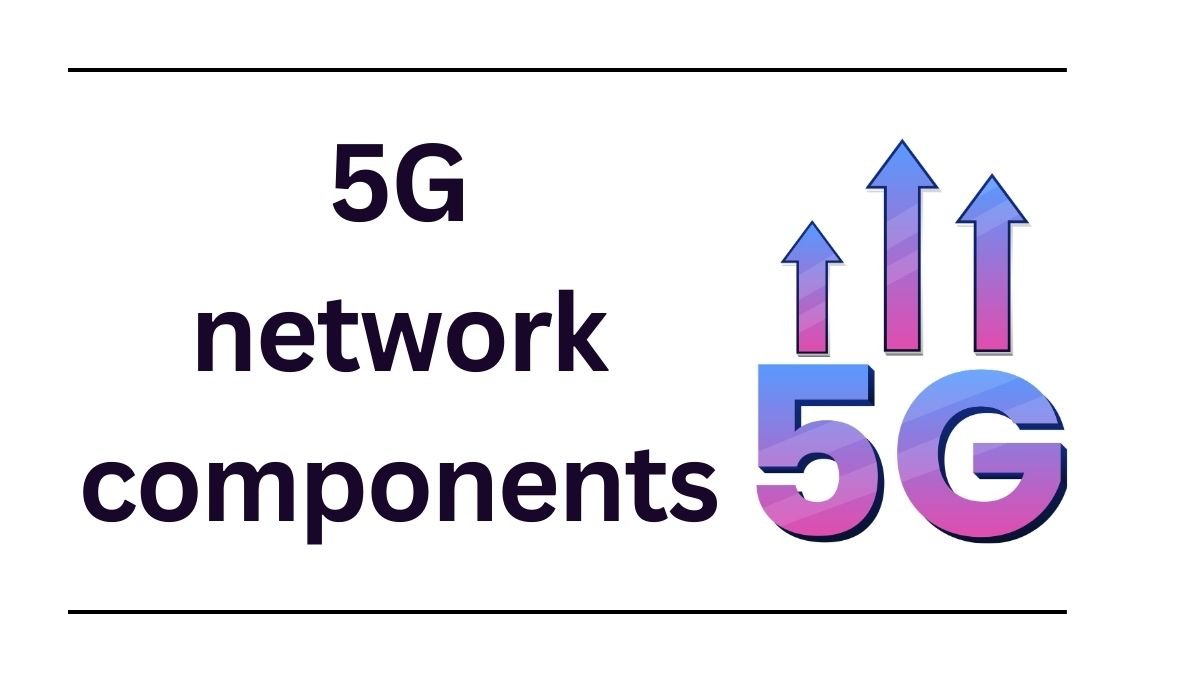
5G has emerged as a game-changer, promising unprecedented speed, reliability, and connectivity. As we delve into the intricacies of 5G network components, it becomes evident that this revolutionary technology is not merely an upgrade but a paradigm shift. Let’s unravel the key components shaping the future of connectivity.
Introduction to 5G Network Components
The journey into the world of 5G begins with an understanding of its core components. Unlike its predecessors, 5G is not just about faster internet on your smartphone; it’s a holistic transformation of the entire network infrastructure.
The Core Elements of 5G Networks
1. Millimeter Waves
One of the pillars of 5G is the utilization of millimeter waves, enabling higher data transfer rates. These waves, operating in the 30-300 GHz range, pave the way for faster and more efficient communication.
2. Small Cells
In contrast to traditional large-cell towers, 5G relies on a dense network of small cells. These compact stations enhance coverage and capacity, ensuring a seamless user experience in densely populated areas.
3. Massive MIMO
Massive Multiple Input, Multiple Output (MIMO) technology plays a crucial role in 5G networks. By using numerous antennas, massive MIMO optimizes data transfer, minimizing latency, and boosting network efficiency.
Radio Access Network (RAN) in 5G
1. Base Stations
At the heart of 5G’s RAN are base stations, connecting devices to the network. These stations facilitate the exchange of data, ensuring a reliable and high-speed connection.
2. Antennas
The deployment of advanced antennas is a key component in achieving the high speeds promised by 5G. These antennas come in various forms, each catering to specific needs and scenarios.
3. Backhaul
Efficient backhaul mechanisms ensure the seamless flow of data between the core network and the RAN. The backhaul is a critical aspect of 5G infrastructure, contributing to low latency and high bandwidth.
Core Network Components
1. Cloud-native Architecture
5G embraces a cloud-native architecture, decentralizing network functions. This approach enhances flexibility, scalability, and resource utilization.
2. Network Slicing
Network slicing allows the creation of multiple virtual networks within the same physical infrastructure. This innovation enables tailored solutions for diverse applications, from autonomous vehicles to augmented reality.
3. Edge Computing
The integration of edge computing in 5G networks brings computing resources closer to end-users. This reduces latency and enhances the overall performance of applications and services.
Devices and User Equipment
1. 5G Smartphones
The widespread adoption of 5G smartphones is a driving force behind the network’s growth. These devices support higher data speeds, enabling users to experience the full potential of 5G connectivity.
2. IoT Devices
The Internet of Things (IoT) ecosystem thrives on 5G connectivity. From smart homes to industrial sensors, 5G enables a massive influx of connected devices, transforming how we interact with our surroundings.
3. Wearables
Wearable devices, equipped with 5G capabilities, redefine the user experience. From health monitoring to augmented reality glasses, wearables leverage 5G to offer seamless and immersive functionalities.
5G Security Measures
1. Encryption
Ensuring the security of data transmission is paramount in 5G networks. Robust encryption mechanisms safeguard sensitive information, protecting users from potential cyber threats.
2. Authentication
Identity verification is a crucial aspect of 5G security. Robust authentication protocols prevent unauthorized access and ensure the integrity of the network.
3. Network Slicing Security
As network slicing becomes integral to 5G, addressing security concerns specific to each virtual network becomes imperative. Customized security measures for individual slices fortify the overall network.
Challenges and Future Developments
1. Interference and Obstacles
Despite its potential, 5G faces challenges related to interference and obstacles. Addressing these issues is crucial for ensuring consistent and reliable connectivity.
2. Integration with Existing Networks
Integrating 5G with existing networks poses challenges. Compatibility issues need to be resolved for a smooth transition and coexistence with 4G and other technologies.
3. Anticipated Technological Advancements
The future holds promises of technological advancements in 5G, including improved efficiency, higher data rates, and novel applications. Staying ahead of the technological curve is essential for harnessing the full potential of 5G.
The Impact of 5G Network Components
1. Enhanced Connectivity
5G’s impact extends beyond speed; it revolutionizes connectivity. From faster downloads to real-time communication, 5G sets the stage for a connected future.
2. Transformative Industries
Industries such as healthcare, manufacturing, and transportation undergo transformative changes with the integration of 5G. Enhanced efficiency and communication redefine traditional processes.
3. Advancements in Healthcare
The healthcare sector witnesses groundbreaking advancements with 5G, from remote surgeries to real-time patient monitoring. The reliability of 5G connectivity plays a pivotal role in these innovations.
Comparisons with Previous Generations
1. Speed and Latency
Comparing 5G with its predecessors reveals unparalleled speed and reduced latency. The difference is not just incremental; it’s a leap into a new era of instantaneous communication.
2. Network Capacity
The increased network capacity of 5G enables the simultaneous connection of a massive number of devices. This scalability is a significant leap forward from previous generations.
3. Use Cases
From smart cities to smart agriculture, 5G’s use cases surpass the boundaries of traditional networking. Exploring these diverse applications reveals the versatility of 5G technology.
The Global Rollout of 5G
1. Leading Countries in 5G Adoption
Certain countries lead the global race in adopting 5G technology. Understanding the trends in these nations provides insights into the global evolution of 5G.
2. Economic Implications
The economic impact of 5G is profound, influencing industries, job markets, and innovation. Nations investing in 5G have witnessed a surge in economic growth and technological advancements.
3. Regulatory Frameworks
The development and implementation of robust regulatory frameworks are essential for the successful deployment of 5G. Balancing innovation with ethical and safety considerations is a delicate task.
Future Applications and Possibilities
1. Augmented Reality (AR) and Virtual Reality (VR)
The combination of 5G and AR/VR opens up new dimensions of immersive experiences. From gaming to professional training, the possibilities are limitless.
2. Autonomous Vehicles
5G plays a pivotal role in the evolution of autonomous vehicles. Real-time communication and data exchange are critical for ensuring the safety and efficiency of self-driving cars.
3. Smart Cities
The concept of smart cities is not a distant dream but a tangible reality with 5G. From intelligent traffic management to energy-efficient solutions, 5G transforms urban living.
Addressing Concerns and Misconceptions
1. Health Concerns
Public concerns regarding the health implications of 5G require transparent communication. Addressing these concerns with scientific facts is crucial for fostering public trust.
2. Environmental Impact
Examining the environmental impact of 5G infrastructure is essential. Balancing technological progress with eco-friendly practices ensures a sustainable future.
3. Privacy Issues
As 5G facilitates a hyper-connected world, privacy concerns come to the forefront. Striking a balance between connectivity and individual privacy is an ongoing challenge.
The Role of 5G in Industry 4.0
1. Smart Manufacturing
In the era of Industry 4.0, 5G plays a pivotal role in smart manufacturing. From predictive maintenance to efficient supply chain management, 5G transforms the manufacturing landscape.
2. Supply Chain Optimization
Efficient supply chain management becomes a reality with 5G. Real-time tracking, data analytics, and automation enhance the overall efficiency of supply chain operations.
3. Industrial IoT
The integration of 5G with the Industrial Internet of Things (IoT) ushers in a new era of connectivity and control. Industrial processes become more agile, responsive, and intelligent.
Tips for Harnessing the Power of 5G
1. Business Integration
Businesses can leverage 5G by integrating it into their operations. From improved customer experiences to enhanced efficiency, the benefits are vast.
2. User Education
Educating users about the capabilities and implications of 5G is essential. Empowered users make informed choices, contributing to the responsible and widespread adoption of 5G.
3. Collaborative Innovation
The true potential of 5G unfolds when industries collaborate on innovative solutions. Cross-sector collaborations drive advancements and open up new possibilities for 5G applications.
Conclusion
In conclusion, 5G network components represent the cornerstone of the digital future. From millimeter waves to advanced security measures, each element contributes to the unparalleled connectivity and transformative potential of 5G. Embracing this technology requires addressing challenges, fostering innovation, and navigating ethical considerations. As we stand on the brink of a connected era, the impact of 5G extends beyond faster downloads—it reshapes industries, societies, and daily experiences.
FAQs About 5G Network Components
Is 5G safe for health?
Addressing common concerns about the potential health impact of 5G.
How does 5G differ from previous generations?
Exploring the key differences in speed, latency, and network capacity.
What industries benefit the most from 5G?
Highlighting the transformative impact of 5G on various industries.
How can businesses integrate 5G effectively?
Providing practical tips for businesses to harness the power of 5G.
What are the future possibilities of 5G technology?
Delving into the potential applications and advancements in the 5G landscape.

 Tech5 months ago
Tech5 months ago3d Printer Technology (Application) (History) And (Types)

 5G2 months ago
5G2 months agoWhat is the difference between 5G and 5G Plus?

 Computer1 year ago
Computer1 year ago“Bleeping Computer: Your Ultimate Guide to Cybersecurity”

 5G1 year ago
5G1 year agoDifference between 5G nsa and 5G sa

 5G1 year ago
5G1 year agoHow does 5g work on iPhone?

 5G1 year ago
5G1 year agoThe Future of 5G Technology : Revolutionizing Connectivity

 Tech1 year ago
Tech1 year agoExplain How Technology Has Affected People’s Activity Levels

 5G2 months ago
5G2 months agoWho has the fastest 5G network?
